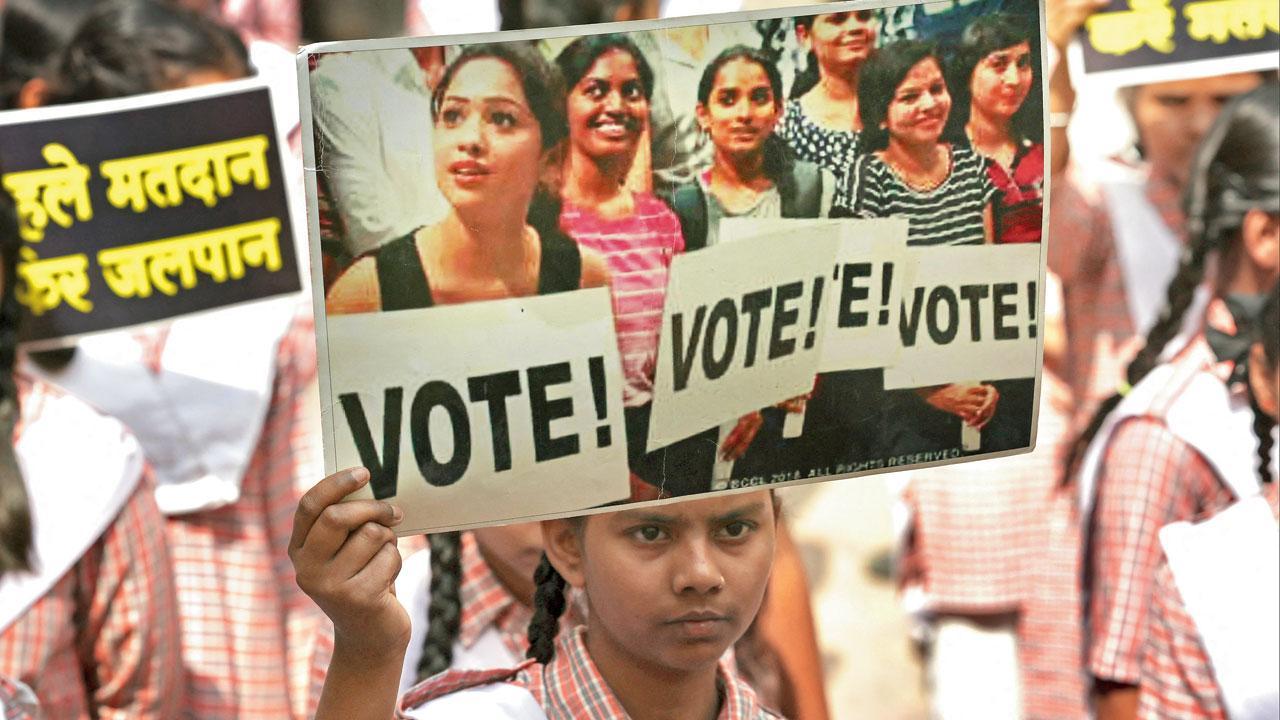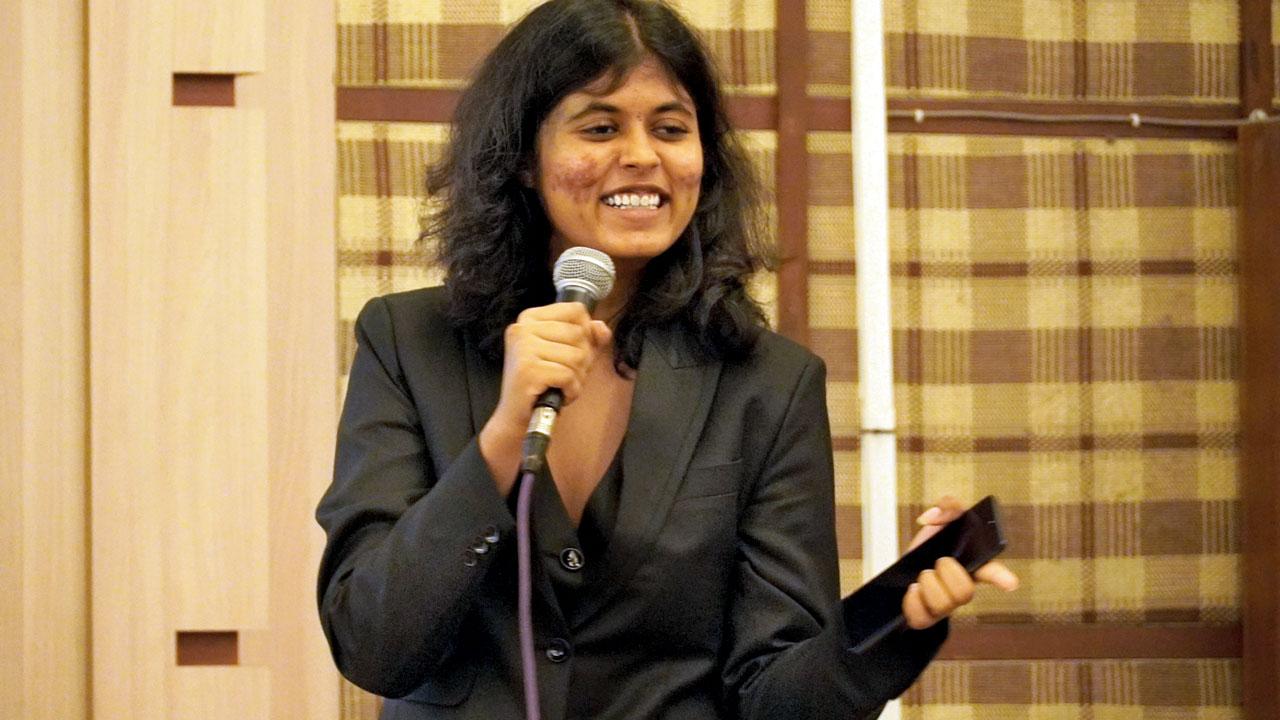But it may be a bit troublesome. A 20-year-old first-time voter shares an agonising account of voter ID migration

College students hold placards to create awareness for citizens to vote in Varanas. Pic/AFP
In 2013, this writer got her first taste of elections when she noticed Vasundhara Raje’s face plastered in every nook and cranny of the city, her voice blaring through the TV in her dining room. The year after, even though the ten-year-old couldn’t entirely comprehend the “abki baar, Modi sarkaar” slogan, the blue ink mark on her parents’ index finger had her excited about the power of a vote.
ADVERTISEMENT
Fast forward ten years and a shift to the maximum city, it’s time for us to cast her first vote. Choosing between travelling back to Rajasthan to vote or staying here and exploring options like postal voting or migrating voter ID was like choosing the lesser of the two evils. Postal voting isn’t an option anymore as it requires eligible voters to apply, Form 12 D, to the returning officer (RO) of their respective constituency and hence was ruled out.
The migration of voter ID required filling an online form on the Election Commission of India website. In true government website fashion, the server was down. This called for a trip to the regional office. Coincidentally that morning, a socially aware social media account, Andheri West Shit Posting had posted that it was the last day to migrate the voter ID and shared the procedure for it as well.

Tanya Syed
Migrating one’s voter ID entails changing the constituency to your current residence, for which, a No Objection Certificate signed by the landlord and a copy of your neighbour’s voter ID is required so that the corresponding polling booth is allocated. Armed with Aadhar, PAN, lease agreement, and five copies for each, we rushed to the nearest election branch listed on the Election Commissioner of India website.
Our courteous landlord and his wife came along to see if we needed help. As is stereotypical of government offices—it had been shifted a km away and would shut for the day at 5 pm. It was nearing 1.30 pm and our anxiety levels had shot up considerably, however, in our heads, we knew that no vote was not an option for any of us anymore.
When we finally reached the new office at 1.45 pm, we were told to collect Form No. 6 and fill it up, followed up with an official declaring confidently that voter IDs can’t be migrated across state borders. Right. Then another official confirmed that it could be a possibility. Finally, a third official concurred.
Government offices have a way of convincing you that you know nothing, even when you do. Before handing out the form, they questioned us tirelessly on the intention. “Are you sure?” asked one. “You’re going to have to change it again if you move. Why do so much work?” said another. “It’s no issue,” we said.
From speaking in Marathi—a language we weren’t fluent in—to addressing us indirectly in loud crosstalks ; it wasn’t the best experience. The only respite, before the day ended, our voter ID was active. We were told, officials would drop by to confirm the residence, and then finally, just finally, I’d get to vote for the first time. In Mumbai.
As the three of us left that building that evening, our landlord heaved a sigh of relief, looked at our tired faces and asked, “You could have just voted in the next elections” Well, we could have, but this feels better.
 Subscribe today by clicking the link and stay updated with the latest news!" Click here!
Subscribe today by clicking the link and stay updated with the latest news!" Click here!







